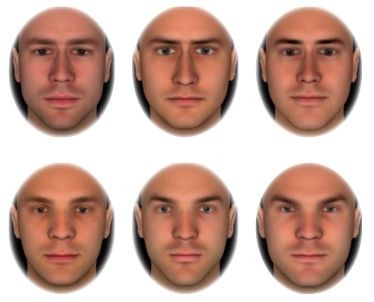Highly Intelligent People May Be More Likely To Believe Stereotypes

Higher cognitive abilities may come with a pitfall -- a susceptibility to judging people based on stereotypes. A new study from New York University found that highly intelligent people are quicker to learn stereotypes and base decisions off them. It may come down to someone's ability to detect and encode patterns.
The research revealed that high-intelligence people were more likely to use stereotypes when deciding who to trust. It’s not all bad news though, as these same individuals are likely to quickly update and change their ideas on stereotypes when introduced to new information.
See Also: How Smart Am I? 7 Science-Backed Signs Of High Intelligence
“Superior cognitive abilities are often associated with positive outcomes, such as academic achievement and social mobility,” said lead study author David Lick, in a statement.“However, our work shows that some cognitive abilities can have negative consequences—specifically, that people who are adept at detecting patterns are especially quick to learn and apply social stereotypes.”

For the study, 1,257 individuals were shown a series of computerized male faces that were paired with a description of past behavior, either positive or negative. However, the researchers manipulated avatar faces so that people with noses that were purposely wider were associated with negative traits, while those with more narrow noses were associated with positive traits. Following this, individuals were asked to complete a task in which they had to trust an individual online who was represented by an avatar face similar to those the volunteers were shown in the trait association task. Individuals who scored higher on pattern detection, a sign of higher intelligence, were also more likely to associate wider noses with negative traits, and were less likely to trust wide-nosed avatars in the final task.
According to a 2014 paper on the topic, published in Frontiers in Neuroscience, pattern processing can be described as the encoding and integration of perceived or mentally-fabricated patterns, which can then be used for decision-making. Pattern detection is an essential part of human intelligence, and is one of the main features that helped our brains evolve into what they are today, but the skill has its limits.
“Finding that higher pattern detection ability puts people at greater risk to detect and apply stereotypes, but also to reverse them, implicates this ability as a cognitive mechanism underlying stereotyping,” added co-author Jonathan Freeman in a statement.
While stereotypes can be useful and a way to avoid danger, such as associating police officers with safety or gunmen with danger, there are pitfalls to oversimplifying people based on a generally held idea. Stereotypes cause you to judge people without knowing anything about them - we wouldn't want others to do that to us, so why not afford them the same courtesy.
Source: Lick DJ, Alter AL, Freeman JB. Superior Pattern Detectors Efficiently Learn, Activate, Apply, and Update Social Stereotypes. Journal of Experimental Psychology. 2017
See Also:
Big Yawns Means Big Brains, And 3 Other Strange Signs Of Intelligence
Sarcastic Much? Intelligence, Wit, And Creativity All Linked To Sarcasm, Study Suggests



























